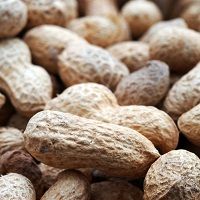Early Exposure to Peanuts Can Prevent Kids from Developing Nut Allergy Later On
Study results that may soon trigger sweeping changes to pediatric nutrition guidelines indicate that sustained consumption of peanuts over the first 5 years of life dramatically lowers the risk of peanut allergies, even among high-risk children who begin with mild sensitivity to peanuts.

A large new trial that may soon trigger sweeping changes to pediatric nutrition guidelines indicates that sustained consumption of peanuts over the first 5 years of life dramatically lowers the risk of peanut allergies, even among high-risk children who begin with mild sensitivity to peanuts.
The director of the National Institute of Allergy and Infectious Disease and leading allergy researchers around the world have applied terms like “groundbreaking” to the findings, which appear in The New England Journal of Medicine. Indeed, an accompanying editorial argued that the “landmark” study was compelling enough to begin immediately replicating its peanut exposure schedule in all high-risk infants, aged 4 to 8 months, who test negative for actual peanut allergies.
“Although other studies are urgently needed to address the many questions that remain, especially with respect to other foods, the [Learning Early about Peanut Allergy] study makes it clear that we can do something now to reverse the increasing prevalence of peanut allergy,” wrote Rebecca S. Gruchalla, MD, PhD, and Hugh A. Sampson, MD, on behalf of the publication.
British researchers divided 640 infants (4 months to 10 months) who had already been diagnosed with severe eczema, egg allergies or both into 2 cohorts by using skin-pricks to test for peanut sensitivity. They then randomly assigned the kids in both cohorts to avoid peanut proteins altogether or to consume 6g per week (in 3 separate meals) until the age of 5.
Among the 530 children who initially tested negative for peanut allergies, the prevalence of peanut allergies at 60 months was 13.7% in the avoidance group and 1.9% in the consumption group (P<0.001). Among the 98 kids who initially tested positive for mild peanut allergies, the prevalence of peanut allergies at 60 months was 35.3% in the avoidance group and 10.6% in the consumption group (P=0.004).
Those numbers, however, actually understate the apparent benefit of exposure for children who actually ate the peanut protein for several years.
After the researchers had assigned the kids in both cohorts to either consume or avoid peanut protein, they gave all the consumption-group kids a peanut challenge in the lab to make sure those kids could safely eat peanut protein at home. Kids who had reactions were told to avoid peanuts rather than consumer them for the next 4 years, but they are still reported in the tallies above as consumption-group kids who ended the trial with allergies.
Excluding such kids and focusing just on the nearly 300 consumption-group kids who actually began the consumption protocol, only 1 child had a peanut allergy at the 60-month mark.
The researchers noted several potential weaknesses in their trial design, including the lack of low-risk kids and a placebo group. They also added that follow-up work is already underway to see if children maintain their tolerance for peanut protein after regular weekly exposure ends.
Still, the study authors believe their findings have sweeping implications.
“For decades allergists have been recommending that young infants avoid consuming allergenic foods such as peanut to prevent food allergies,” said Gideon Lack, MB, of Kings College, London “Our findings suggest that this advice was incorrect and may have contributed to the rise in the peanut and other food allergies.”
Guidelines released in 2000 by the American Academy of Pediatrics urged parents to keep high-risk children away from all peanut products until age 3. The academy revised its position in 2008, saying there was no clear evidence that food avoidance beyond the 6-month mark might prevent allergies, but many parents have continued to keep peanuts away from young children, high-risk or not.
Peanut allergies, meanwhile, have almost quadrupled among American kids.